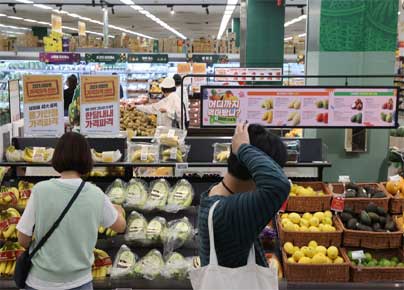South Korea extends tariff exemption for imported fruits
2024-06-14

In a proactive move to curb food price inflation, the South Korean government has announced an extension of the tariff exemption for ten imported fruits until the end of September. This strategic decision is part of the government's ongoing efforts to maintain market stability. The fruits that will continue to benefit from zero import duty include bananas, pineapples, mangoes, grapefruit, kiwifruit, avocados, mangosteens, cherries, durian, and mandarins. Initially set to expire at the end of June, Korea's Deputy Prime Minister and Finance Minister, Choi Sang-mok, extended the tariff exemption. During a price-related ministers' meeting in June, Choi noted that while the inflation rate has slowed to 2%, the overall price level has increased, causing difficulties for ordinary people. He emphasized the need for all companies to stabilize living and shopping cart prices. In addition to extending the tariff exemption for the ten fruits, the government also announced measures to extend the exemption on 28 other imported fruits, including fresh and frozen items.
Tariff reductions will also be applied to 12 food ingredients, such as sugar and coffee beans, and a quota-based tariff adjustment will be introduced for seven more food materials, including butter and whole milk powder. June Choi, Managing Director of major fruit importer Soo Il Commerce, predicts that the tariff exemption will open significant opportunities for increased fruit imports to Korea in 2024, potentially reaching record highs.
This projection underscores the potential for growth and expansion in the market. However, Hyojun Kim, Senior Sourcing Manager of Shinsegae Food, suggests that the impact of the tariff exemption might be less significant in the second half of the year compared to the first. Kim also notes that import volumes of bananas, pineapples, and mangoes are expected to expand, similar to the period from January to June. He adds that the volumes of mangosteen and durian are tiny in the Korean market and that mandarins will be available in September. Despite a decline in demand for grapefruit in Korea over the past several years, import volumes have experienced a surge in recent weeks due to the tariff exemption.
This significant increase in import volumes directly results from the tariff exemption, providing a clear illustration of the current market dynamics. Importers in Korea have been striving to import a large quantity of South African grapefruit before the end of June to take advantage of the tariff exemption. Excess volumes are arriving this month with the extension of the tariff exemption. Soo Il's Choi confirmed that large volumes of South African grapefruit have entered the market. As of Week 24 (commencing June 10), arrivals had already exceeded the total import volume for 2023. He also mentioned that large volumes of Australian oranges are arriving, leading to an oversupply. However, it should be noted that oranges and grapes are not included in the list of tariff-exempt fruits.









